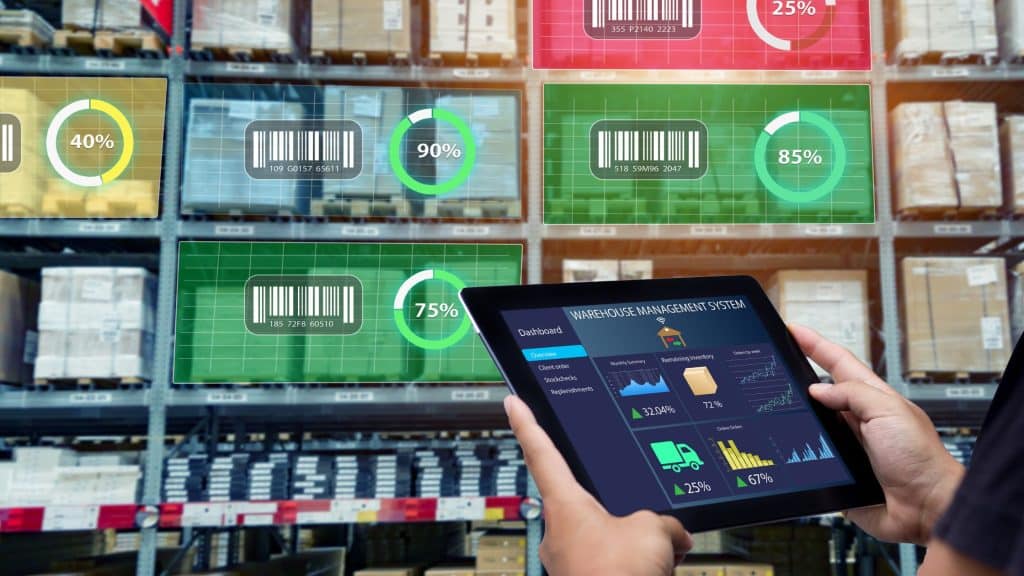Are you pivoting your career into the realm of analytics and data-driven decision-making? If so, you may have come across job titles like “Data Scientist” and “Decision Scientist.” While these terms may sound similar, they represent distinct roles that require unique skill sets and responsibilities. Understanding the differences between these two professions is crucial in determining which path aligns best with your interests and goals. In this article, we will unravel the key distinctions between Data Scientists and Decision Scientists, exploring their roles, responsibilities, and the variances that set them apart. Let’s dive in!
Distinguishing Data Scientist from Decision Scientist
Exploring the Varied Roles of Data Scientists and Decision Scientists
At first glance, both Data Scientists and Decision Scientists seem to revolve around data analysis and insights generation. While this is true to some extent, their involvement in the data science field diverges in several ways. Data Scientists leverage their sophisticated technical skills and statistical expertise to extract knowledge from enormous datasets and draw conclusions that drive strategic decision-making.
However, there is more to the story. Let’s delve deeper into the fascinating world of Data Scientists and Decision Scientists to understand the nuances of their roles and the impact they have on organizations.
Data Scientists, with their deep understanding of algorithms and machine learning techniques, possess the ability to uncover hidden patterns and trends in data that might otherwise go unnoticed. They are skilled in programming languages such as Python and R, and have a knack for manipulating and analyzing large datasets. Their expertise extends beyond just statistical analysis; they are proficient in data visualization techniques, enabling them to present their findings in a visually appealing and easily understandable manner.
On the other hand, Decision Scientists bring a unique perspective to the table. They not only possess strong analytical skills, but also have a deep understanding of the business domain in which they operate. This combination of technical and business knowledge allows them to bridge the gap between theoretical data analysis and practical implementation. Decision Scientists work closely with key stakeholders, such as executives and managers, to understand their objectives and challenges. They then use their analytical prowess to provide actionable recommendations that align with the organization’s goals.
Contrasting Data Scientist and Decision Scientist Responsibilities
While both Data Scientists and Decision Scientists work extensively with data, their day-to-day responsibilities differ significantly. Data Scientists are primarily responsible for designing and implementing complex data models, building predictive models, and performing statistical analyses to uncover patterns and trends. They also handle data cleaning, preprocessing, and feature engineering, ensuring the quality and relevance of the datasets they work with.
However, Decision Scientists have a broader scope of responsibilities. In addition to analyzing data, they collaborate closely with business stakeholders, understanding their objectives and requirements, and translating them into data-driven strategies. They identify key business problems and define measurable metrics to track the impact of their recommended solutions. Decision Scientists possess a holistic view of the organization, working with cross-functional teams to integrate data insights into the decision-making process.
Furthermore, Decision Scientists play a crucial role in driving organizational change. They not only provide recommendations based on data analysis, but also actively participate in the implementation and monitoring of these recommendations. They work closely with teams across the organization, ensuring that data-driven decisions are effectively implemented and continuously evaluated for their impact.
In conclusion, while Data Scientists and Decision Scientists share a common foundation in data analysis, their roles and responsibilities diverge in significant ways. Data Scientists focus on extracting insights from data using sophisticated technical skills, while Decision Scientists leverage their analytical expertise and business acumen to drive data-driven decision-making across organizations. Both roles are essential in today’s data-driven world, and organizations benefit from having a diverse team that includes both Data Scientists and Decision Scientists.
Decoding the Distinctions Between Data Scientist and Decision Scientist
Understanding the Unique Skill Sets of Data Scientists and Decision Scientists
Data Scientists are highly skilled in programming languages such as Python or R, as well as statistical analysis and machine learning techniques. They possess the ability to manipulate and analyze vast datasets, using tools like SQL and data visualization frameworks to communicate their findings effectively. Additionally, Data Scientists have a deep understanding of algorithms and mathematical concepts, enabling them to build advanced predictive models.
On the other hand, Decision Scientists exhibit strong analytical thinking and problem-solving capabilities. They excel in translating complex concepts into actionable insights and possess excellent communication and storytelling skills. Decision Scientists are proficient in data visualization and presentation tools, enabling them to create compelling narratives that resonate with diverse audiences.
Let’s delve deeper into the world of Data Scientists. These highly skilled individuals are not just experts in programming languages and statistical analysis; they are also masters of data manipulation. Data Scientists possess an uncanny ability to extract valuable information from vast datasets, uncovering hidden patterns and trends that can drive business success. Their expertise in tools like SQL allows them to navigate through complex databases with ease, while their proficiency in data visualization frameworks enables them to present their findings in a visually appealing and easily understandable manner.
But what about Decision Scientists? These analytical powerhouses are not just problem solvers; they are also exceptional consultants. Decision Scientists have a unique talent for understanding the intricacies of business operations and identifying areas where data-driven solutions can make a significant impact. They work closely with stakeholders, immersing themselves in the organizational landscape to gain a comprehensive understanding of the challenges at hand. Armed with this knowledge, Decision Scientists use their analytical skills to optimize processes, streamline operations, and improve decision-making frameworks. Their ability to blend technical expertise with business acumen sets them apart as invaluable assets to any organization.
Data Scientist vs. Decision Scientist: Unveiling the Key Differences
While the roles of Data Scientists and Decision Scientists may seem interchangeable, there are a few fundamental differences that set them apart. Data Scientists emphasize a more technical and analytical approach, focusing on uncovering patterns and building predictive models using machine learning algorithms. Their primary goal is to provide valuable insights to support strategic and tactical decisions across various domains.
Decision Scientists, on the other hand, adopt a more holistic approach, blending technical expertise with business acumen. They act as consultants, working closely with stakeholders to identify business problems and provide data-driven solutions that align with the organizational goals. Decision Scientists use their analytical skills to optimize processes, streamline operations, and improve decision-making frameworks.
It is important to note that while Data Scientists and Decision Scientists have distinct skill sets and approaches, they often collaborate closely to achieve common objectives. Their combined expertise can lead to powerful insights and solutions that drive innovation and success in today’s data-driven world.
Navigating the Worlds of Data Science and Decision Science
The Intersection of Data Scientist and Decision Scientist Roles
Despite the distinctions, Data Scientists and Decision Scientists share a common goal: unleashing the power of data to drive informed decision-making. In fact, the roles of Data Scientists and Decision Scientists often intersect, with professionals transitioning seamlessly between these positions. This intersection underscores the importance of both technical expertise and a comprehensive understanding of business needs in the field of data-driven decision-making.
When Data Scientists and Decision Scientists collaborate, they bring together a diverse range of skills and perspectives. Data Scientists, with their deep technical expertise in data analysis and machine learning, are able to uncover patterns and predict future outcomes. On the other hand, Decision Scientists combine analytical prowess with business acumen to provide actionable recommendations guided by data insights. By working together, these professionals can bridge the gap between data analysis and strategic decision-making, ensuring that organizations make the most informed choices.
Organizations that embrace the collaborative efforts of both Data Scientists and Decision Scientists stand to gain a competitive advantage. The integration of technical prowess and strategic thinking allows businesses to leverage insights from data analysis, translate them into actionable strategies, and make informed decisions that maximize operational efficiency and drive growth. This collaborative approach also fosters a culture of innovation, as professionals from different backgrounds come together to solve complex problems and drive meaningful change.
Data Scientist vs. Decision Scientist: Breaking Down the Variances
In summary, the distinctions between Data Scientists and Decision Scientists lie in their specialization, skill sets, and day-to-day responsibilities. Data Scientists possess deep technical expertise in data analysis and machine learning, enabling them to uncover patterns and predict future outcomes. Decision Scientists, on the other hand, combine analytical prowess with business acumen to provide actionable recommendations guided by data insights. Both roles play vital roles in the era of data-driven decision-making, and understanding their unique contributions is crucial in charting your career path.
While Data Scientists focus on the technical aspects of data analysis, Decision Scientists bring a strategic perspective to the table. They not only analyze data but also consider the broader business context, taking into account factors such as market trends, customer behavior, and organizational goals. Decision Scientists are skilled in translating complex data into meaningful insights that can drive effective decision-making at all levels of an organization.
Whether you are inclined towards the technical aspects of data analysis or the strategic application of insights, the growing demand for both Data Scientists and Decision Scientists offers an abundance of opportunities. By leveraging your unique skill set, passion, and aptitude, you can carve a successful career in the captivating world of data science and decision-making. Embrace the intersection of these roles, and you’ll find yourself at the forefront of driving data-driven innovation and shaping the future of organizations.
As you consider the dynamic roles of Data Scientists and Decision Scientists in shaping the future of data-driven decision-making, remember that the right tools are crucial in bridging the gap between data analysis and actionable insights. Graphite Note is at the forefront of this transformation, offering a no-code machine learning platform that turns the complexity of data science into clear, actionable predictions and strategies. Whether you’re part of a Business Intelligence team or a Data Analytics team looking to harness the power of Predictive and Prescriptive Analytics, Graphite Note is your partner in innovation. Don’t let the global shortage of data scientists hold you back. Take the first step towards unlocking new revenue streams and enhancing your decision-making capabilities. Request a Demo today and experience how Graphite Note can revolutionize your approach to data science and analytics.




